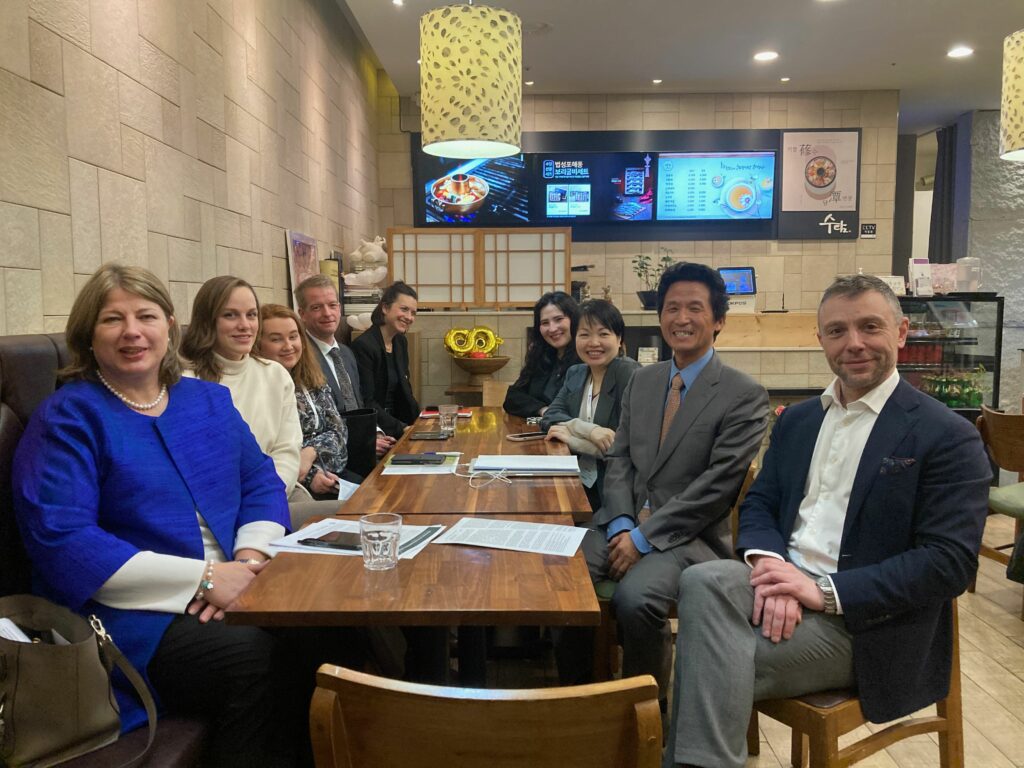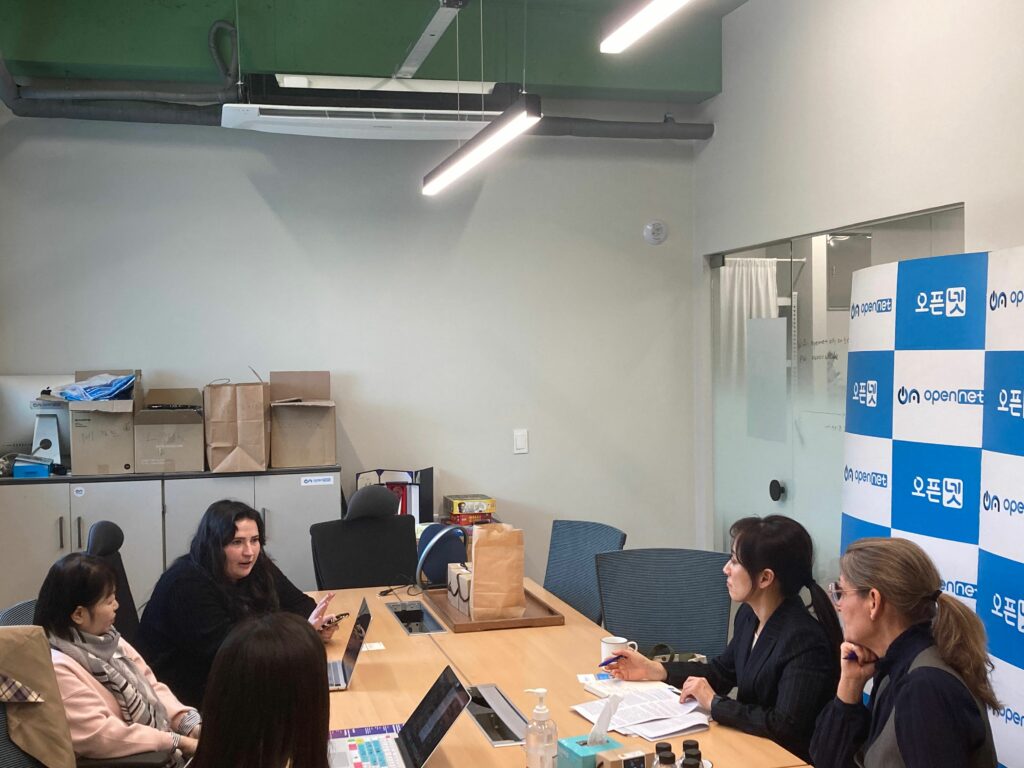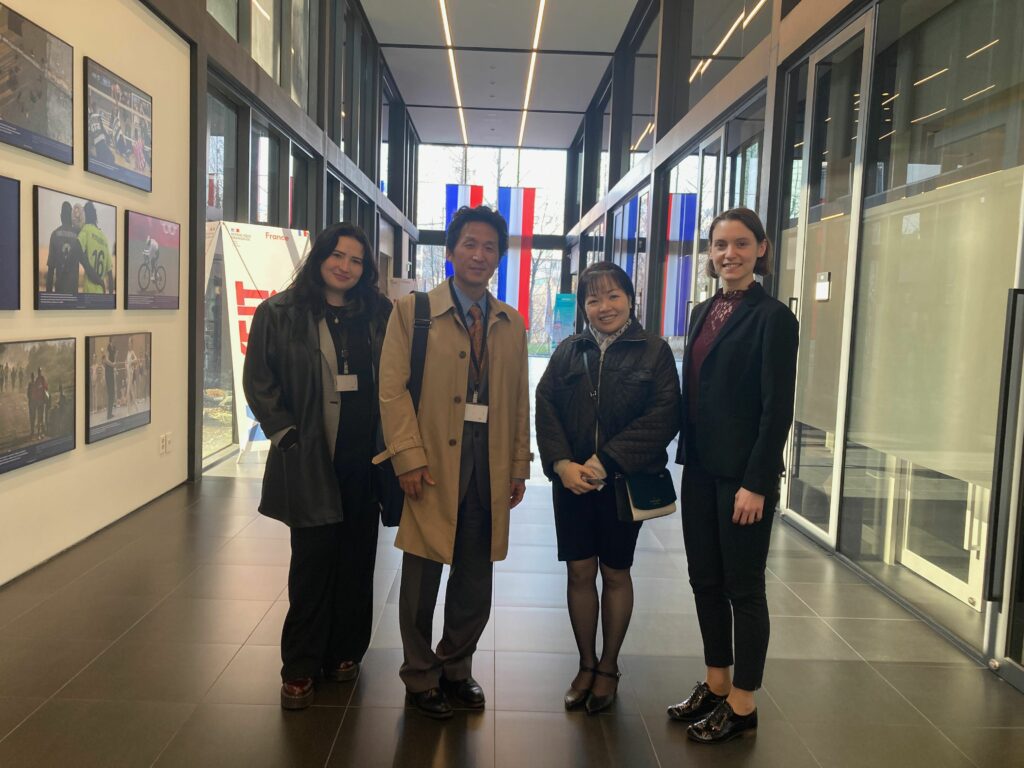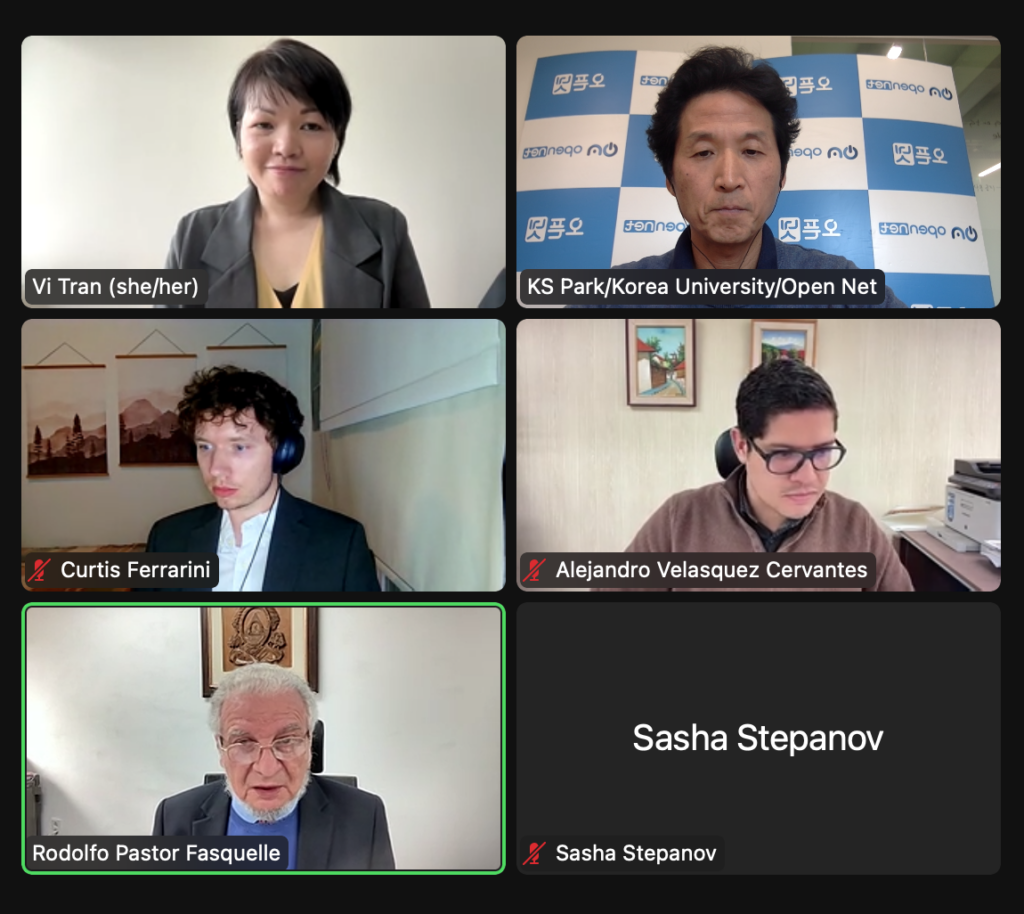From March 19 through 27, Open Net lobbied for Vietnam’s digital rights in preparation for the United Nations Human Rights Council’s Universal Periodic Review of the country on May 7, 2024, using the international forum for diplomatic conversation created on the occasion of the 3rd Summit for Democracy held in Seoul. Open Net assisted Legal Initiative for Vietnam (LIV) and joined forces with the University of California at Irvine International Justice Clinic (IJC) in engaging the political officers of the UN Human Rights Council member countries who will review the Vietnamese government on the status of digital rights. This was in continuation from the on-ground lobbying efforts in early February 2024 as memorialized in a brief and an oral statement based thereon delivered in person to the Geneva Permanent Missions of UK, South Korea, German, Czech Republic, US, EU Delegation, Denmark, Norway, and Sweden.
On March 19, Open Net, IJC, and LIV held a informal briefing attended by the representatives of the Freedom Online Coalition who were attending the Summit: the Netherlands (Chair), Denmark, Latvia, Estonia, and the United States, where a brief and a presentation was presented.

On March 20, Open Net, IJC, and LIV met the Human Rights Ambassador of Sweden to discuss the human rights conditions of Vietnam, presenting the same material but discussing the uniqueness of Sweden.

On March 21, Open Net, IJC, and LIV visited the Chilean Embassy in Seoul to discuss the digital rights conditions in Vietnam, emphasizing the importance of the intervention of Latin American countries, which will buttress the people’s beliefs.
On March 21, Open Net, IJC, and LIV visited the French Embassy in Seoul to discuss the digital rights conditions of Vietnam, using the same material.

On March 27, Open Net, IJC, and LIV met with the Honduras Embassy in Seoul to discuss the digital rights conditions of Vietnam.

After the meetings, Open Net, IJC, and LIV provided to all of the above diplomatic officers the list of suggested recommendations from which Human Rights Council member countries choose in making recommendations to Vietnam when the country is reviewed by the Council on May 7.
We believe the 2024-2025 UN human rights bodies discourse will be an opportune moment to put pressure on the Vietnamese government on their digital rights practices. As much investment is leaving China and choosing Vietnam as the alternative destination recently, the Vietnamese government is keen on projecting an image of a normal open economy. (Vietnam is now a signatory to 7 major human rights treaties, compare to 3 of the US.) It also happened that Vietnam is being reviewed both by the Human Rights Council and the Human Rights Committee in the span of 2024-2025. Our lobbying effort for UPR above was in parallel to the submission of List Of Issues that Open Net submitted with Article 19 and LIV in January 2024 to the UN Human Rights Committee. We believe we will also participate in the UN Human Rights Committee session on Vietnam due to take place in March 2025.
The Summit for Democracy was a valuable and probably only space before Vietnam’s UPR on May 7. The Human Rights Council member countries consolidate their positions on the country under review a few weeks or months before the HR Council session on Vietnam. Going to the May 7 meeting is not an efficient use of resources for this reason. The Geneva mission chiefs of these countries depend much on the communications from the home offices but it will be difficult to visit the home offices of 47 HR Council member countries. A perfect alternative will be to visit the embassies that those member countries have in Hanoi (24 out of 47 do so) but the security for the in-country advocacy critical of the government could not be guaranteed, especially for the local civil society personnel who whose presence will be indispensable for such lobbying efforts. The Summit for Democracy was a magical moment when we could meet with many diplomatic offices of the HR member countries. Especially, the Latin American member countries, while vocal on human rights, have not spoken much on Vietnam in previous UPR cycles and we made a big break by obtaining their audience in this iteration.
FOLLOW-UP: The final report of Vietnam UPR was published in June 2024 and revealed that the member countries that Open Net and the team specifically engaged with did deliver on their promises to make strong recommendations on, for instance, criminalization of dissident speech, although most recommendations were not adopted by Vietnam. The following recommendations of the Human Rights Council will remain as resource material and international soft law for the coming generations of human rights activists engaging the future government of Vietnam:
42.123 Undertake relevant legislative reforms to ensure that human rights defenders enjoy appropriate protection and free exercise of freedom of expression. association and assembly (Spain);
42.124 Revise articles 117 and 331 of the Penal Code to protect freedom of expression, peaceful assembly, and religion or belief (United States of America);
42.125 Revise articles 117 and 331 of the Penal Code to protect fundamental freedoms, such as the right to freedom of expression, including online and in digital spaces, and guarantee fair trials (Kingdom of the Netherlands);
42.126 Repeal or review articles 117, 118 and 331 of the Penal Code to harmonize them with international law on freedom of expression, association and assembly (Switzerland);
42.127 Repeal or revise articles 117 and 331 of the 2015 Penal Code, to ensure the rights to freedom of expression, association and peaceful assembly in line with the International Covenant on Civil and Political Rights (Belgium);
42.128 Take steps to guarantee and protect the rights to freedom of expression, association and religion by reforming articles 117 and 331 of the Penal Code (United Kingdom of Great Britain and Northern Ireland);
42.129 Repeal legal provisions that unduly restrict the rights to freedom of expression and assembly and bring them into line with international human rights standards (Ireland);
42.130 Strengthen efforts to ensure full respect for freedom of expression, association and assembly, and protect these rights in practice and law (Lesotho);
42.131 Take measures to guarantee freedom of expression (France);
42.132 Guarantee the right to freedom of expression, both through traditional and online media, by modifying or repealing vague legal provisions that threaten this right (Chile);
42.133 Strengthen its legal framework to protect freedom of expression both offline and online and amend its Penal Code and Cybersecurity Law to ensure consistency with international human rights law (New Zealand);
42.134 Guarantee the exercise of the rights to freedom of expression and assembly, including by bringing relevant provisions of the Penal Code and the Cybersecurity Law into line with international human rights standards (Austria);
42.135 Repeal or amend laws restricting the freedom of opinion and expression and access to the Internet by bringing them into line with international standards (Estonia);
42.136 Guarantee the right to freedom of expression and opinion, and create an enabling environment for civil society (Italy);
42.137 Ensure that freedom of expression, especially media freedom, and freedom of assembly are respected (Finland);
42.138 Continue to take measures to best guarantee the protection and free exercise of freedom of opinion and expression, online and offline, in accordance with international standards (Romania);
42.139 Ensure freedom of speech as provided for in the International Covenant on Civil and Political Rights, by, for example, examining amendments to articles 109, 117 and 331 of the Penal Code (Germany);


0 Comments